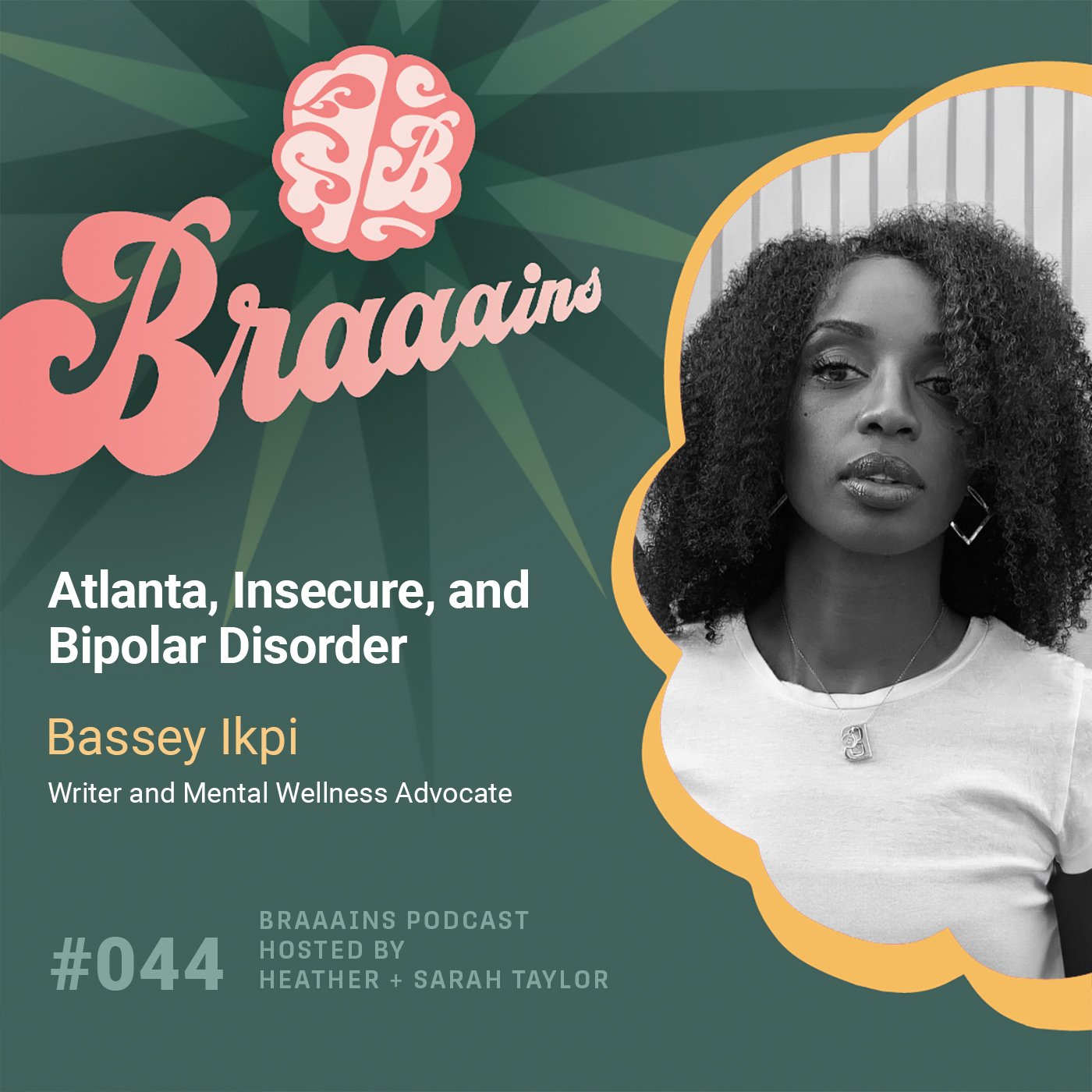Ep 044: Atlanta, Insecure, and Bipolar Disorder
Welcome to season three of Braaains! Today we have the pleasure of talking with New York Times Best Selling author Bassey Ikpi about Bipolar II disorder, how she got her diagnosis, and the representation of bipolar and depression on shows like Atlanta, Insecure, and Dave.
Listen on Spotify | Amazon | iHeart | Any player
Bassey is a Nigerian-American, ex-poet, current writer, constant mental health advocate, underachieving overachiever, and memoir procrastinator. Her book “I’m Telling the Truth But I’m Lying” is available in both print and audio.
Listen to Braaains on these platforms (or anywhere you listen to podcasts!)
Music: Deppisch
Mixing/ Mastering: Tony Bao
Support this show: Patreon.com/BraaainsPodcast
ABOUT OUR GUEST
Bassey Ikpi is a versatile creative force known as a writer, author, ex-poet, performer, speaker, burpee abolitionist, and mental wellness advocate. She first made her mark on the classic 90s show BET’s Teen Summit and gained recognition as a renowned poet on HBO’s Def Poetry Jam. Her global tour with the Tony Award-winning Broadway show came to a pause with a bipolar II diagnosis, leading her to pivot toward mental wellness advocacy in her writing.
Bassey now openly shares her journey living with a chronic mental illness, inspiring others to navigate life beyond diagnosis. Her story is vividly captured in the Instant New York Times Bestselling debut book, “I’m Telling The Truth, but I’m Lying” (Harper Perennial, 2019). Despite embracing roles like an underachieving overachiever and semi-pro procrastinator, Bassey is diligently working on various creative projects, including her upcoming second book, “Before I Let Go.”
TAKEAWAYS
Bipolar disorder is a mood disorder characterized by high highs and low lows.
There are different types of bipolar disorder, including bipolar I, bipolar II, and cyclothymic disorder. Bipolar disorder commonly runs in families: 80 to 90 percent of individuals with bipolar disorder have a relative with bipolar disorder or depression.
The symptoms and severity of bipolar disorder can vary from person to person.
Receiving a diagnosis of bipolar disorder can be a life-changing experience and may require hospitalization for treatment.
Representation in media, such as TV shows, can have a significant impact on individuals with mental health conditions and their decision to disclose their condition.
The TV show Atlanta provides a unique and accurate depiction of depression and the internal struggles individuals may face.
It is important to prioritize mental health and seek help when needed, even if it means taking a break or making lifestyle changes. Television shows like Atlanta, Insecure, and Dave have done a commendable job in depicting mental health issues such as trauma, PTSD, depression, and bipolar disorder.
Realistic and nuanced representations of mental health conditions help viewers understand and empathize with the experiences of those who are affected.
It is important to avoid stigmatizing portrayals that oversimplify or sensationalize mental health issues.
Misrepresentations and stigmas surrounding mental health in media can perpetuate harmful stereotypes and prevent open conversations about mental health. Self-diagnosis can be dangerous and lead to misrepresentation of mental health.
Individual experiences of mental health disorders can vary greatly.
Creating the right environment and finding coping mechanisms are crucial for managing mental health.
Breaking the stigma surrounding mental health and creating connections through shared experiences is crucial for fostering understanding and support.
Acknowledgment and validation are important for individuals struggling with mental health issues, as it helps them feel seen and understood.
Starting at a disadvantage due to mental health issues requires self-compassion and understanding, as well as recognizing personal limits and prioritizing self-care.
Pretending everything is fine can be detrimental to mental health, and it is important to seek help and support when needed.
Adapting mental health stories for different mediums can be challenging, as it requires careful consideration of the story's essence and impact.
REFERENCES
Find Bassey at @Basseyworld on all social media or her website, basseyikpi.com
BOOK: I'm Telling The Truth, But I'm Lying by Bassey Ikpi
Other episodes you’ll enjoy:
You’re Not Alone: The Road to Diagnosis - Episode 037
Addiction - Episode 016
You’re Not Alone: How Stigma Hurts Everyone (we talk about Atlanta on this episode as well) - Episode 036
Listen to recent episodes on Apple Podcasts:





